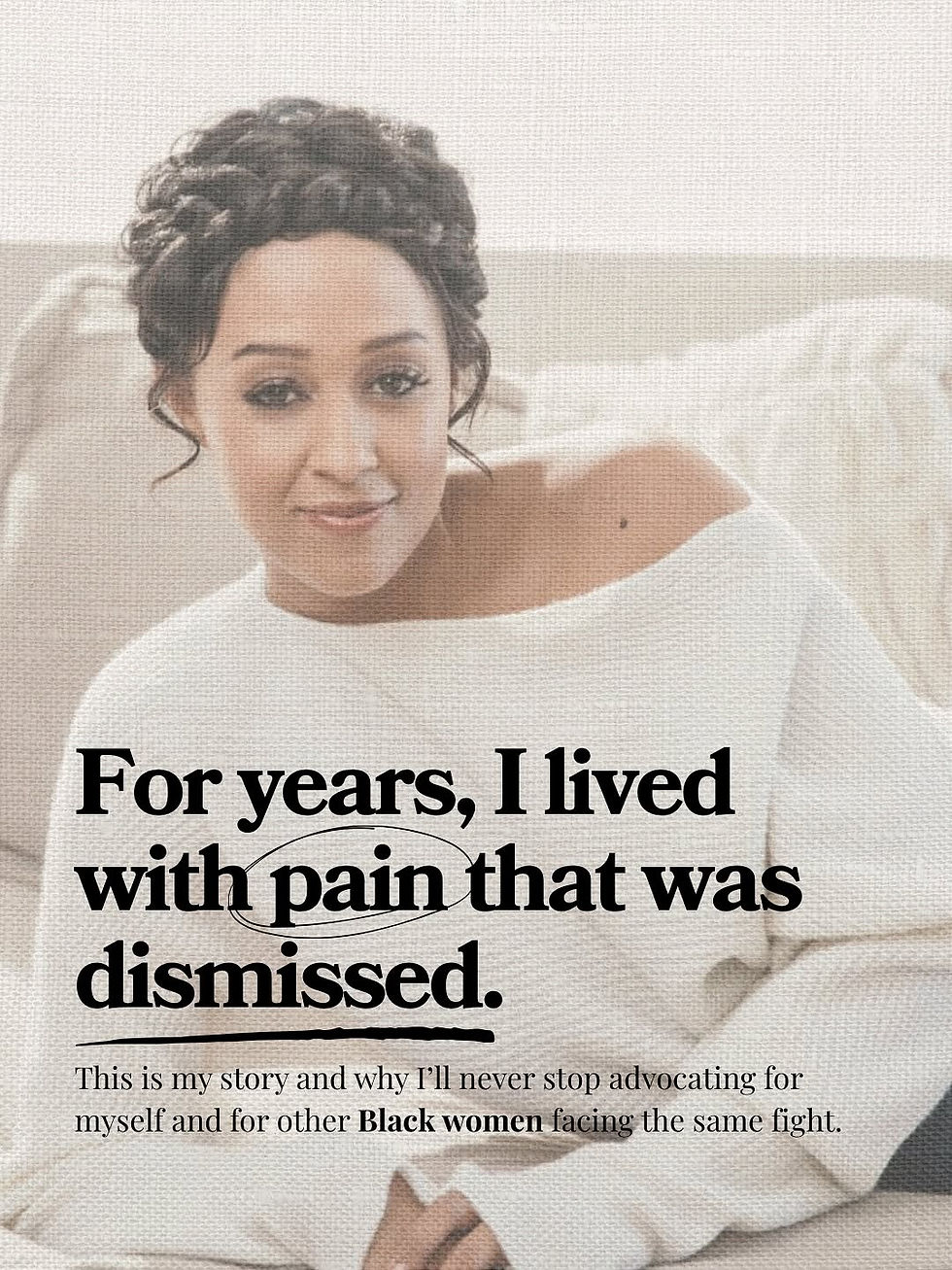
Black Women Deserve Better Healthcare: Tia Mowry’s Endometriosis Story
- Mercy Edmund Harold
- Jul 17, 2025
- 2 min read
When Tia Mowry speaks, women listen—not just because she’s a beloved actress, but because she uses her platform to talk about the things so many women are forced to endure in silence. Her latest revelation is deeply personal: her battle with endometriosis, a chronic, often painful disease that affects millions of women globally but is still misunderstood and underdiagnosed, especially among Black women.

“I See You. I’ve Been You.”
"To every woman who's ever been told her pain is 'just part of being a woman'—I see you. I've been you. My story with endometriosis is a reminder that we have to fight for our health… and for each other."
In her own words, Tia highlights a painful truth: Black women are more likely to have their pain dismissed or misdiagnosed by healthcare professionals. Studies show that Black women wait longer for proper diagnoses for conditions like endometriosis, fibroids, and other reproductive health issues, often being told their symptoms are exaggerated or “normal.”
For Tia, it took years of discomfort, confusion, and persistence before she was properly diagnosed—a reality that resonates with countless women of color.
What is Endometriosis?
Endometriosis occurs when tissue similar to the lining of the uterus grows outside the womb, causing chronic pain, inflammation, and sometimes infertility. It has no known cure and can significantly affect a woman’s quality of life.
Research suggests that millions of women worldwide suffer from endometriosis, with a significant number in the UK alone. Yet, stigma, lack of research funding, and racial bias in healthcare have left many women undiagnosed or misdiagnosed for years.

The Conversation Must Continue
Endometriosis is more than “bad cramps.” It’s a life-altering disease that needs more awareness, research, and empathy—especially for Black women who face systemic barriers to proper care.
Tia’s message is clear: “We have to fight for our health… and for each other.”
So check in on the women in your life. Share information. Support research. And if you’re experiencing symptoms, keep pushing until someone listens.
.png)







Comments